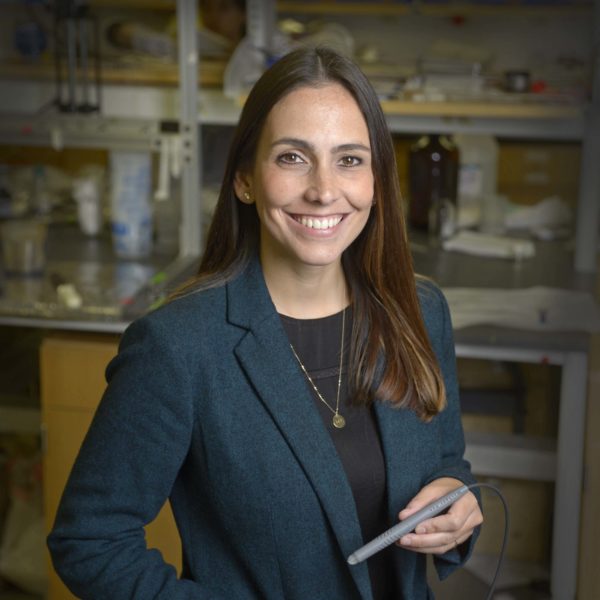“Recently one of my really close friends was going through an ovarian cancer diagnosis, and she had to wait over a week to get the diagnosis from the surgical procedure,” says Livia Eberlin, an assistant professor at The University of Texas at Austin. Eberlin has shortened that wait to 10 seconds with a pen-shaped device that, when touched to a suspicious mass, will diagnose it as cancerous or benign — and, if cancerous — specify the type. The technology, now being tested in patients, can be used before the suspect tissue is even removed. For Eberlin’s work, the university has named her its Emerging Inventor of the Year.
Currently, a surgeon must remove a tumor and send it to an adjacent room where a pathologist analyzes the tissue and then calls the surgical suite with the results. By empowering the surgeon to make decisions in real time, Eberlin’s breakthrough might ensure that all the cancer is removed. It also might spare the healthy adjacent tissue that now is often removed out of an abundance of caution.
The device releases a single droplet of water on top of the tissue. If cells are cancerous, they will have a chemical profile completely different from that of a normal cell. By gently extracting these molecules and doing chemical analysis, along with statistical algorithms and machine learning, the system provides an immediate diagnosis.
“To have that assurance and that certainty — that indeed the surgeon was able to get the cancer without any doubt — it really changes their treatment plan and increases their hope for a cure. To develop a technology or a new invention or a tool that would really make an impact on society takes a lot of people,” says Eberlin. “This is definitely not just my work.
“This award is special because one of my main goals as a scientist in my career was to develop an invention that would benefit society and cancer patients,” she adds.
Eberlin grew up in Brazil and came to The University of Texas at Austin via Stanford University. Her award comes amid a slew of other recent honors including a Sloan Research Fellowship in chemistry and a MacArthur Fellowship.



